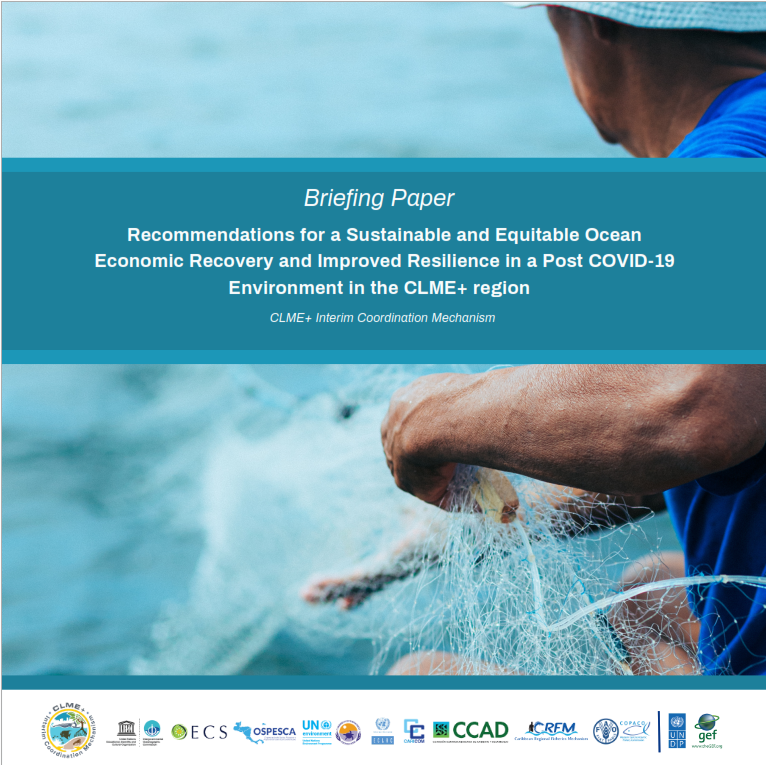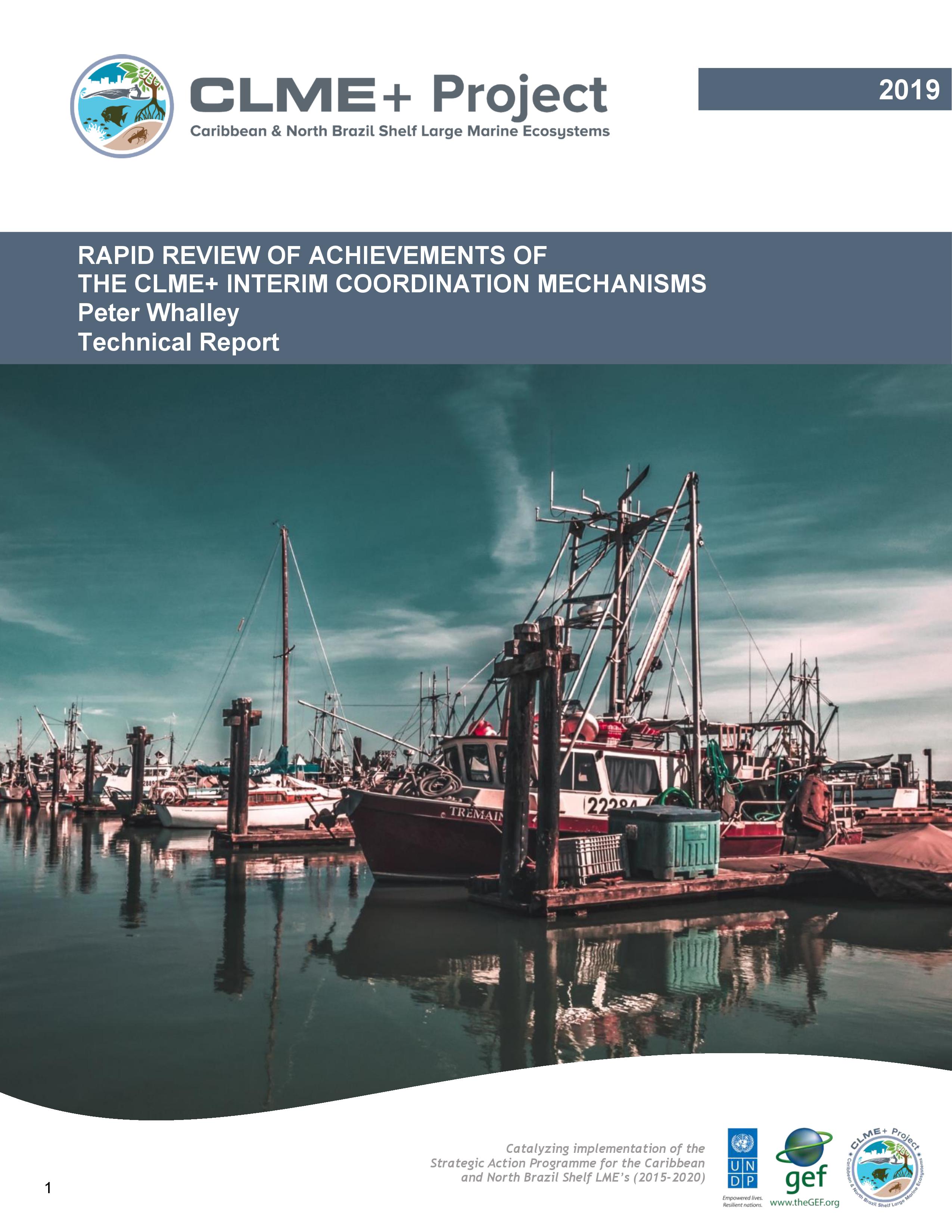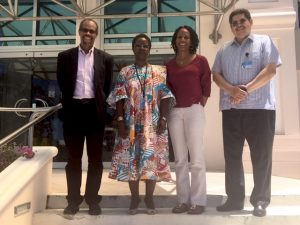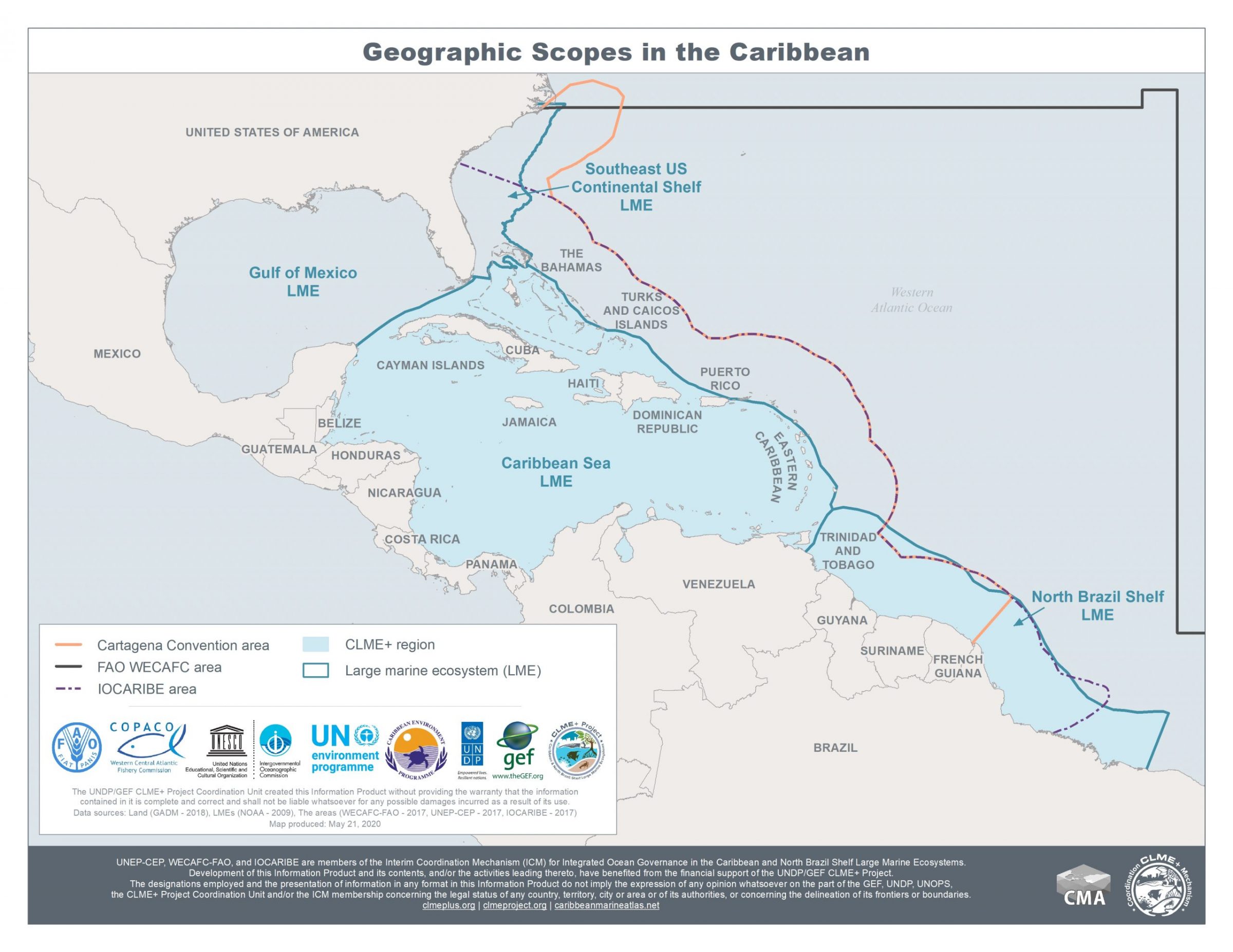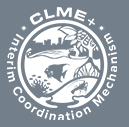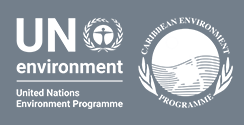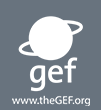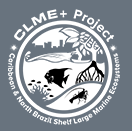REGIONAL DECISIONS ON A COORDINATION MECHANISM FOR OCEAN GOVERNANCE
The constituting Memorandum of Understanding (MoU) that will enable the creation of an Ocean Coordination Mechanism (OCM) for the wider Caribbean was finalised at the last UNDP/GEF CLME+ Project Steering Committee Meeting held on 11-12 October 2021, marking an end to five year regional negotiations on the matter. This historic meeting was attended by representatives from twenty-five States and Territories and fifteen Organizations from the Wider Caribbean region.
The landmark decision on the MoU has now cleared the road towards a multi-stakeholder platform that will allow to convene and discuss, plan and coordinate actions to restore and protect the region’s marine assets, in support of sustainable ocean-based economies and climate-resilient development.
The next steps include the reconciliation of the text in Spanish and French to ensure that all languages of the MoU are equally valid. After the completion of the language reconciliation, the MoU will be open for signature by the States, Territories and Intergovernmental Organizations from the Wider Caribbean region listed in Annex 1 of the MoU. The signatures from a minimum of twenty three countries and Intergovernmental Organizations are required to enable the Coordination Mechanism to become operational. A counter has been installed on the homepage of the CLME+ Hub (clmeplus.org) that will allow progress towards this target (see the “Interactive Timeline” section on the homepage).
The CLME+ Interim Coordination Mechanism (ICM) acts as the custodian of the MoU text and will be responsible to collect all signatures thereto, until the Mechanism becomes established. Since the 1st of November 2021, the IOCARIBE of the IOC of UNESCO and the UNDP/GEF PROCARIBE+ PPG Phase Coordination Unit will jointly assume the responsibilities of the Secretariat of the ICM until the end of the PROCARIBE+ Project Preparation Phase (PPG) scheduled for June 2022.
The CM will seek to enhance collaboration and coordination for the conservation and sustainable use of the Caribbean and North Brazil Shelf Large Marine Ecosystems. In connection to this decision, members of the Steering Committee decided in key aspects of this Coordination Mechanism, which was requested under Action 3.2 of SAP CLME+
Virtual Meeting of the CLME+ Project Steering Committee, 16 – 18 June 2020
The CLME+ Project Steering Committee:
Having convened the intersessional UNDP/GEF CLME+ Project Steering Committee Meeting virtually utilizing the Kudo Meeting Platform from 16-18 June, with a total of 114 participants representing 22 countries and 16 organizations and Chaired by Panama with the Deputy Chairperson from Trinidad and Tobago and the Rapporteur from Saint Vincent and the Grenadines;
Noting the Declaration of the Delegation of Colombia relative to the decisions of the CLME+ Project Steering Committee on the Coordination Mechanism.
Click here to read the declaration.
Have convened in the following recommendations and decisions related to the Coordination Mechanism;
Decisions on the core aspects:
SUB-AGENDA ITEM 5.1 – CORE ASPECTS OF THE COORDINATION MECHANISM
- Reiterates the importance of proceeding with the setting-up of a Coordination Mechanism
2. Supports and endorses in principle the text included in document “PSC2006_AG5.1 Core Aspects of the Coordination Mechanism” and recognizes that further refinement may be needed as the draft Memorandum of Understanding (MoU) is further negotiated.
Decisions on the establishment of the agreement:
SUB-AGENDA ITEM 5.2 – CREATION OF THE COORDINATION MECHANISM
- Supports the use of a non-binding Memorandum of Understanding as the preferred modality for expressing the intent to create the Coordination Mechanism
- Supports the formation of a drafting group, with representation from legal and technical expertise, to advance the work on the draft Memorandum of Understanding for the creation of the Coordination Mechanism
- Requests the CLME+ Project Coordination Unit (PCU) to issue a call for interest for participating in the MoU drafting group.
SUB – AGENDA ITEM 5.3 – PROCESS AND TIMELINE TOWARDS THE CREATION AND OPERATIONALISATION OF A COORDINATION MECHANISM
- Acknowledges the proposed process and tentative timeline towards the creation and operationalisation of the Coordination Mechanism as presented by the CLME+ Project Coordination Unit (PCU) and as reflected in document “PSC2006_AI5.3 Process and Tentative Timeline”
- Acknowledges the debriefing of the CLME+ PCU on the preliminary call for expressions of interest to host the secretariat of the Coordination Mechanism, noting an expression of interest submitted by the Government of Honduras
Participants
This virtual meeting of the CLME+ Project Steering Committee had the participation of the following members and observers.
Virtual Meeting of the CLME+ Project Steering Committee, 20 – 21 October 2020
The CLME+ Project Steering Committee:
Having convened the intersessional UNDP/GEF CLME+ Project Steering Committee Meeting virtually utilizing the Kudo Meeting Platform from 20 – 21 October, with a total of 90 participants representing 20 countries and 15 organizations and Chaired by Trinidad and Tobago;
Agreed on the following recommendations and decisions related to the Coordination Mechanism.
The Steering Committee:
Agenda Item 4: Report on the Work Undertaken by the Drafting Group on the draft Coordination Mechanism Memorandum of Understanding
- Commends the CLME+ Memorandum of Understanding (MoU) Drafting Group for its work undertaken in reviewing and making recommendations on the draft Coordination Mechanism Memorandum of Understanding.
Agenda Item 6: Review, discussion and possible advancement towards consensus on the Draft Coordination Mechanism MoU
- Acknowledges the advancements towards consensus on the text of the draft Coordination Mechanism MoU during this special PSC meeting.
- Urges the countries and organisations that have not yet engaged their legal advisors in the development of the MoU to commence that process immediately.
- Intends to further engage towards achieving consensus on the Coordination Mechanism MoU text, and requests the CLME+ PCU to support this process aiming to achieve a technically and legally cleared document by CLME+ Project End
- Calls upon the CLME+ PCU to consider the possibility of organising a consultation to further review and refine the draft MoU prior to the next ordinary meeting of the PSC
Agenda Item 7: Timeline towards the creation of the Coordination Mechanism
- Supports the proposed process and tentative timeline towards the creation and operationalisation of the Coordination Mechanism as presented by the CLME+ Project Coordination Unit (PCU) and as reflected in document “PSC2010_AI7 – Timeline towards the creation of the Coordination Mechanism”
Participants
This virtual meeting of the CLME+ Project Steering Committee had the participation of the following members and observers.
Virtual Meeting of the CLME+ Project Steering Committee, 23 – 25 February 2021
The CLME+ Project Steering Committee:
Having convened the Third and Final Regular Meeting of the UNDP/GEF CLME+ Project Steering Committee virtually utilizing the Kudo Meeting Platform from 23-25 February, 2021, with a total of 109 participants representing 31 States and Territories and 13 organizations, Chaired by The Bahamas, with the Deputy Chair from Honduras,
Agreed on the following recommendations and decisions related to the Coordination Mechanism.
The Steering Committee:
Technical endorsement of the Coordination Mechanism MoU:
Sub Agenda Item 4a: Final fine-tuning and technical endorsement of the Coordination Mechanism Memorandum of Understanding
1. Noting an emerging consensus on the text of this draft Memorandum of Understanding,
2. Technically endorses the content of the Memorandum of Understanding Enabling the Creation of a Coordination
Mechanism to Support Integrated Ocean Governance in the Caribbean and North Brazil Shelf Large Marine Ecosystems and the associated Annex 1 as contained in documents PSC2102 AI4 – Coordination Mechanism draft MoU and PSC2102 AI4 – Annex 1: Potential Signatories for MoU Commencement
3. Notes that the way forward will include the following steps:
4. Requests the CLME+ Project Coordination Unit (PCU), with support from interested Project Steering Committee Members, to conduct a language reconciliation assessment of the Memorandum of Understanding (MoU) to ensure consistency with language in the English and Spanish versions and share the revised version with the Project Steering Committee by 20 March 2021
5. Encourages States, Territories and Inter-governmental organisations listed in Annex I to the MoU to submit the document to their legal departments for review to allow for the finalization and subsequent opening for signature of the Coordination Mechanism MoU and to submit any comments/recommendations, including those aimed at resolving the pending issue related to paragraph 3 of the MoU, to the CLME+ PCU at their earliest convenience, but no later than end of April 2021. In that process, States, Territories and Inter-governmental organisations are invited to verify if they are satisfied that the MoU as drafted will suffice to allow the Coordination Mechanism and its Secretariat to operate efficiently and effectively in
discharging their functions and achieving their objectives, noting in particular the omission of text on the legal personality
of the Coordination Mechanism.
6. Requests the PCU to convene a special Meeting of the CLME+ Project Steering Committee with the aim of achieving finalization and opening for signature of the Coordination Mechanism Memorandum of Understanding before the end of June 2021.
Sub Agenda Item 4b: Operationalizing the Coordination Mechanism
7. Acknowledges that it is up to each State and Territory to determine who would sign the MOU on their behalf and who will represent them in the Steering Group.
8. Recommends that, when considering who would sign the MOU, States and Territories consider high-level officials whose purviews cover the functions of the Coordination Mechanisms as outlined in the MOU.
9. Acknowledges that the representation of each State and Territory at the Coordination Mechanism Steering Group should be such that it will facilitate the successful achievement of the goals and objectives of the Coordination Mechanism, and enable adequate articulation among regional-level and national-level ocean coordination processes, such as e.g. those undertaken by National Inter-sectoral Coordination Mechanisms (NICs).
10. Acknowledges in the context of the latter (a) the importance of well-functioning NICs, as well as (b) the progress made by States and Territories from the region throughout the CLME+ Project towards achieving such well-functioning NICs, and (c) encourages States and Territories to continue working towards the strengthening of national-level ocean coordination processes.
11. Acknowledges the importance of simultaneously and expeditiously moving towards the commencement of both the PROCARIBE+ Project and the Coordination Mechanism, to enable the prompt and successful operationalization of the Coordination Mechanism.
12. Indicates preliminary support for the following approach towards achieving short, medium and long-term sustainability of the Coordination Mechanism, while acknowledging the Steering Group of the Coordination Mechanism may revisit and adjust the approach, and taking into account that a number of States and Territories have voiced their opposition to mandatory financial contributions:
- Short & medium-term (2021/2-2027):
○ Coordination Mechanism Secretariat and other Organs operate (largely) with financial support from the PROCARIBE+ Project
○ PROCARIBE+ Project period used to demonstrate and evaluate CM added value
○ CM considers a range of options and decides, prior to PROCARIBE+ Project end, on post-Project financing mechanism(s) - Long-term (2027 and beyond):
○ Deployment of sustainable financing mechanism(s) endorsed by the Coordination Mechanism Steering Group.
13. While recognizing the relevance of inter-governmental coordination, also acknowledges the importance of actions by all sectors of society, and as such reiterates its support for broad stakeholder partnerships.
14. Requests that the CLME+ PCU solicit proposals for names for the Coordination Mechanism and survey participants regarding preference.
Participants
This virtual meeting of the CLME+ Project Steering Committee had the participation of the following members and observers.
Virtual Meeting of the CLME+ Project Steering Committee, 11 – 12 October 2021
Having convened a Special Meeting of the UNDP/GEF CLME+ Project Steering Committee virtually utilizing the “Congress Rental Network” teleconferencing Platform from 11 – 12 October, 2021, with a total of 98 participants representing 25 States and Territories and 15 Organizations, Chaired by The Bahamas, with the Deputy Chair from Honduras
Agreed on the following recommendations and decisions related to the Coordination Mechanism.
The Steering Committee:
AGENDA ITEM 3: COORDINATION MECHANISM
Sub Agenda Item 3a: Overview of approach adopted since last PSC Meeting towards gathering and compiling comments un the draft MoU
1.Acknowledges the approach utilised by the CLME+ PCU, in gathering and compiling the comments, suggestions and requests by States, Territories and Intergovernmental Organizations emanating from their final (legal) review of the text of the draft “Memorandum of Understanding Enabling the Creation of a Coordination Mechanism to Support Integrated Ocean Governance in the Caribbean and North Brazil Shelf Large Marine Ecosystems” (“the MoU” or the “coordination mechanism MoU”), whose content had been previously technically endorsed at the February 2021 CLME+ Final Regular Steering Committee Meeting
Sub Agenda Item 3b: Overview and status of comments received on the draft MoU text
2. Takes note of the overview and status of comments, suggestions and requests received, and the approach utilised by the CLME+ Project Coordination Unit in dealing with such comments, suggestions and requests.
Sub Agenda Item 3c: Addressing remaining comments
3. Acknowledges the efforts undertaken by the Steering Committee to resolve any outstanding issues relative to the MoU, with the aim of enabling full and satisfactory finalization of the MoU at the Meeting.
Sub Agenda Item 3d: Other requirements for finalizing the MoU
4. Takes note of the efforts undertaken by the CLME+ PCU to facilitate inputs and comments, and the indication of preferences, if any, on possible names for the coordination mechanism.
5. Recommends that a decision on a name for the coordination mechanism can be made by the organs of the coordination mechanism, once the MoU has commenced and the coordination mechanism decision-making processes are operational.
Finalisation of the Coordination Mechanism MoU
Sub Agenda Item 3e: Finalisation of MoU and Annex
6. Provisionally finalizes on the 12th day of October 2021, the MoU and its associated “Annex 1”, as contained in Document “211004 – Coordination Mechanism draft MoU EN & SP and Annex 1: Potential Country & IGO Signatories” and decides to open the MoU for signature, subject to language reconciliation.
7. Accepts UNEP’s gracious offer to conduct a language reconciliation, and requests that they expeditiously carry this out, taking into account any inputs received and subject to the absence of objections from prospective Signatories, through the services of UN certified translators, of the French and Spanish versions of the MoU text to ensure that the English, French and Spanish versions of the MoU are equally valid, prior to the opening for signature of the MoU.
8. Requests the CLME+ Interim Coordination Mechanism (ICM) Secretariat to communicate to all States, Territories and IGOs listed in Annex 1 any relevant deadlines in this regard.
9. Requests the CLME+ ICM Secretariat to announce the Opening for Signature of the MoU to all CLME+ PSC Members as soon as the language reconciliation process described in the previous paragraph has concluded, while encouraging all IGO’s listed in Annex 1 to subsequently and formally inform their Constituents, at their earliest convenience and as applicable, of the Opening for Signature of the MoU.
Sub Agenda Item 3f: Operationalisation of the Coordination Mechanism: Next Steps/Timeline
10. Acknowledges (a) the relevance of swiftly operationalizing the coordination mechanism and (b) invites States, Territories and Inter-Governmental Organisations listed in Annex 1 to sign the MoU as soon as possible after the MoU is open for signature to ensure its prompt commencement, noting that the coordination mechanism MoU is expected to commence on the date that a minimum of twenty-three (23) potential Signatories, including no fewer than seventeen (17) States or Territories and six (6) IGOs, have signed the MoU.
11. Acknowledges the role of the Secretariat of the CLME+ Interim Coordination Mechanism (ICM) as (interim) Custodian of the coordination mechanism MoU and of the signatures thereto, pursuant to Paragraph 36 of the coordination mechanism MoU, provisionally finalized by the PSC.
12. Takes note of the importance of ICM Members formalizing, prior to 31 October 2021, the extension of the ICM lifespan beyond the CLME+ Project End Date.
13. Further takes note of June 2021 Decision ICM11D1.2 of the ICM, through which all ICM Member IGO’s reaffirm their commitment to continue participating in the ICM beyond the CLME+ Project End Date.
14. Therefore urges all ICM Member IGO’s who have not yet done so, to proceed with the signature, prior to the CLME+ Project End Date, of the CLME+ ICM MOU Addendum that will extend the ICM lifespan.
15. Acknowledges the approval of the UNDP/GEF PROCARIBE+ Concept Note (PIF) at the June 2021 GEF Council Meeting, as well as the PIF’s endorsement to date by 18 GEF Operational Focal Points.
16. Further acknowledges the provisions in the PROCARIBE+ PIF for enabling the short-term operationalization of the coordination mechanism with the financial support of the PROCARIBE+ Project, as recommended in Decision 12 from the February 2021 CLME+ Project Steering Committee (PSC).
17. More specifically, acknowledges the provision under the PROCARIBE+ PIF for the PROCARIBE+ Project Coordination Unit to function as the initial/interim coordination Mechanism Secretariat, and endorses the further development and implementation of such cost-effective, short-term financial solution through the PROCARIBE+ Project Document.
18. Reaffirms the importance of simultaneously and expeditiously moving towards operationalizing the PROCARIBE+ Project and commencing the coordination mechanism MoU, noting that the PROCARIBE+ Project is anticipated to financially support the coordination mechanism and its organs.
19. Notes the proposed roadmap and (short) timeline for finalizing the detailed UNDP/GEF PROCARIBE+ Project Document and other documents for submission to the GEF Secretariat.
20. Recommends that States, Territories and Intergovernmental Organisations from the region therefore support the efforts aiming at ensuring the successful and timely finalization and submission to the GEF Agency and Donor of the Project Document and other documents.
21. Invites interested GEF eligible countries from the region who have not done so yet, to consider submitting a GEF Operational Focal Point Endorsement Letter for the PROCARIBE+ PIF at their earliest convenience, to formalize their participation in the Project.
Adoption of the MoU and formal opening for signature
Sub Agenda Item 5b: Adoption of the MoU and formal opening for signature.
27. Provisionally finalizes, subject to language reconciliation, the “Memorandum of Understanding Enabling the Creation of a Coordination Mechanism to Support Integrated Ocean Governance in the Caribbean and North Brazil Shelf Large Marine Ecosystems” and the associated “Annex 1” as constituting the Memorandum of Understanding to enable the commencement and operationalization of the ocean coordination mechanism called for under Strategy 3, Action 3.3, of the “Strategic Action Programme for the Sustainable Management of the Shared Living Marine Resources of the Caribbean and North Brazil Shelf Large Marine Ecosystems” (the CLME+ SAP).
Participants
This virtual meeting of the CLME+ Project Steering Committee had the participation of the following members and observers.





